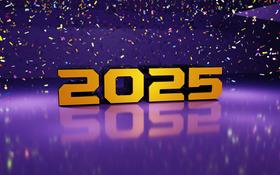For the 2025-26 school year, there are 7 public elementary schools serving 2,419 students in Snoqualmie, WA. The top ranked public elementary schools in Snoqualmie, WA are Snoqualmie Elementary School, Cascade View Elementary School and Timber Ridge Elementary School. Overall testing rank is based on a school's combined math and reading proficiency test score ranking.
Snoqualmie, WA public elementary schools have an average math proficiency score of 69% (versus the Washington public elementary school average of 43%), and reading proficiency score of 77% (versus the 51% statewide average). Elementary schools in Snoqualmie have an average ranking of 10/10, which is in the top 5% of Washington public elementary schools.
Minority enrollment is 36% of the student body (majority Asian), which is less than the Washington public elementary school average of 52% (majority Hispanic).
Best ºÚÁÏÍø¹ÙÍø Elementary Schools in Snoqualmie, WA (2025-26)
School
(Math and Reading Proficiency)
(Math and Reading Proficiency)
Location
Quick Facts
Rank: #11.
Snoqualmie Elementary School
(Math: 84% | Reading: 81%)
Rank:
Rank:
10/
Top 5%10
755 Park St
Snoqualmie, WA 98065
(425) 831-8050
Snoqualmie, WA 98065
(425) 831-8050
Gr: PK-5 | 496 students Student-teacher ratio: 15:1 Minority enrollment: 37%
Rank: #22.
Cascade View Elementary School
(Math: 81% | Reading: 81%)
Rank:
Rank:
10/
Top 5%10
34816 Se Ridge Street
Snoqualmie, WA 98065
(425) 831-4100
Snoqualmie, WA 98065
(425) 831-4100
Gr: K-5 | 525 students Student-teacher ratio: 18:1 Minority enrollment: 30%
Rank: #33.
Timber Ridge Elementary School
(Math: 72% | Reading: 76%)
Rank:
Rank:
10/
Top 10%10
34412 Se Swenson Dr
Snoqualmie, WA 98065
(425) 831-3825
Snoqualmie, WA 98065
(425) 831-3825
Gr: K-5 | 624 students Student-teacher ratio: 16:1 Minority enrollment: 45%
Rank: #44.
Snoqualmie Middle School
(Math: 60% | Reading: 77%)
Rank:
Rank:
9/
Top 20%10
9200 Railroad Ave Se
Snoqualmie, WA 98065
(425) 831-8450
Snoqualmie, WA 98065
(425) 831-8450
Gr: 6-8 | 495 students Student-teacher ratio: 19:1 Minority enrollment: 28%
Rank: #55.
Snoqualmie Parent Partnership Program
Alternative School
(Math: 50-54% | Reading: 75-79%)
Rank:
Rank:
9/
Top 20%10
9200 Railroad Ave Se
Snoqualmie, WA 98065
(425) 831-8440
Snoqualmie, WA 98065
(425) 831-8440
Gr: K-12 | 195 students Minority enrollment: 28%
Rank: #66.
Snoqualmie Access
Special Education School
(Math: <50% | Reading: ≥50% )
Rank:
Rank:
5/
Bottom 50%10
8001 Silva Ave Se
Snoqualmie, WA 98065
(425) 831-8015
Snoqualmie, WA 98065
(425) 831-8015
Gr: PK-12 | 16 students Minority enrollment: 37%
Rank: #77.
Echo Glen School
(Math: ≤10% | Reading: ≤10%)
Rank:
Rank:
1/
Bottom 50%10
33010 Se 99th St
Snoqualmie, WA 98065
(425) 831-2520
Snoqualmie, WA 98065
(425) 831-2520
Gr: 5-12 | 68 students Student-teacher ratio: 6:1 Minority enrollment: 70%
Snoqualmie, Washington ºÚÁÏÍø¹ÙÍø Schools (Closed)
School
Location
Quick Facts
Snoqualmie Valley School District Open Doors (Closed 2023)
Alternative School
8001 Silva Ave Se
Snoqualmie, WA 98065
(425) 831-8000
Snoqualmie, WA 98065
(425) 831-8000
Gr: 9-12 | 33 students Minority enrollment: 33%
Frequently Asked Questions
What are the top ranked public elementary schools in Snoqualmie, WA?
The top ranked public elementary schools in Snoqualmie, WA include Snoqualmie Elementary School, Cascade View Elementary School and Timber Ridge Elementary School. Snoqualmie has one of the highest concentrations of top ranked public schools in Washington.
How many public elementary schools are located in Snoqualmie?
7 public elementary schools are located in Snoqualmie.
What is the racial composition of students in Snoqualmie?
Snoqualmie public elementary schools minority enrollment is 36% of the student body (majority Asian), which is less than the Washington public elementary schools average of 52% (majority Hispanic).
Which public elementary schools in Snoqualmie are often viewed compared to one another?
Popular comparisons of public elementary schools in Snoqualmie include: Snoqualmie Elementary School vs. Cascade View Elementary School, Cascade View Elementary School vs. Snoqualmie Elementary School, Timber Ridge Elementary School vs. Cascade View Elementary School
Recent Articles

Texas Schools Enrollment Trends & Policy in 2025
Latest data and policy changes on Texas public school enrollment growth, funding, and virtual education in 2025.

Financial Aid & Hidden Costs in ºÚÁÏÍø¹ÙÍø Schools
Learn about financial aid and hidden costs in public schools. Discover what parents should budget for beyond tuition-free education.

NYC Schools Still Most Segregated in 2025
Despite reforms, New York City schools remain the most segregated in the U.S. in 2025. Here’s what parents and educators need to know.
